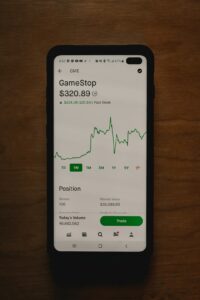The Future of Forex Trading: Exploring the Impact of Robotics and Automation on the Market
The forex market, also known as the foreign exchange market, is the largest and most liquid financial market in the world. With trillions of dollars traded daily, it offers numerous opportunities for investors and traders. Over the years, technological advancements have played a significant role in shaping the forex market, and the rise of robotics and automation is set to have a profound impact on the future of forex trading.
Robotics and automation have already made their mark on various industries, revolutionizing the way tasks are performed. In the forex market, these technologies are transforming trading strategies, providing traders with advanced tools and algorithms that can analyze vast amounts of data and execute trades with precision and speed.
One of the most notable impacts of robotics and automation on forex trading is the ability to automate trading strategies. Traditionally, traders had to manually analyze market conditions, identify trading opportunities, and execute trades. This process was time-consuming and prone to human errors. With the advent of automated trading systems, also known as forex robots or expert advisors, traders can now automate their strategies and let the software execute trades on their behalf.
Forex robots are designed to analyze market data, identify trends and patterns, and execute trades based on predefined rules and algorithms. These robots can operate 24/7, monitoring the market for trading opportunities and executing trades instantaneously. This automation eliminates human emotions and biases from the trading process and allows for faster and more accurate decision-making.
The impact of automation on forex trading goes beyond just executing trades. Advanced algorithms and machine learning techniques are being used to develop trading robots that can adapt and learn from market data. These intelligent robots can analyze historical data, identify patterns, and make predictions about future market movements. By continuously learning and adapting, these robots can optimize trading strategies and improve performance over time.
Another significant impact of robotics and automation on forex trading is the ability to trade with high-frequency strategies. High-frequency trading (HFT) is a trading strategy that involves executing a large number of trades in a short period, often within milliseconds. HFT relies on complex algorithms and powerful computer systems to identify and exploit market inefficiencies.
The use of robotics and automation has enabled traders to engage in HFT strategies with unprecedented speed and efficiency. High-speed trading platforms can process vast amounts of data in real-time, identify trading opportunities, and execute trades within microseconds. This level of speed and precision is impossible to achieve manually, giving automated traders a significant advantage in the market.
While robotics and automation offer numerous benefits to forex traders, there are also concerns and challenges associated with their implementation. One of the major concerns is the potential for technological failures and glitches. As trading becomes increasingly reliant on automation, any technical issues or system failures can have severe consequences. Flash crashes, where prices plummet or surge within seconds, are examples of the risks associated with automated trading.
Moreover, there is an ongoing debate about the impact of automation on employment in the forex industry. As more tasks become automated, there is a concern that human traders and analysts may become obsolete. However, proponents argue that automation will lead to the creation of new jobs, such as developing and maintaining trading algorithms and systems.
In conclusion, the future of forex trading is being shaped by robotics and automation. These technologies offer traders advanced tools and algorithms that can analyze vast amounts of data, execute trades with precision and speed, and adapt to changing market conditions. While there are concerns and challenges associated with automation, the benefits it brings to the forex market are undeniable. As the industry continues to evolve, it is crucial for traders to embrace these advancements and leverage them to stay ahead in an increasingly competitive market.






